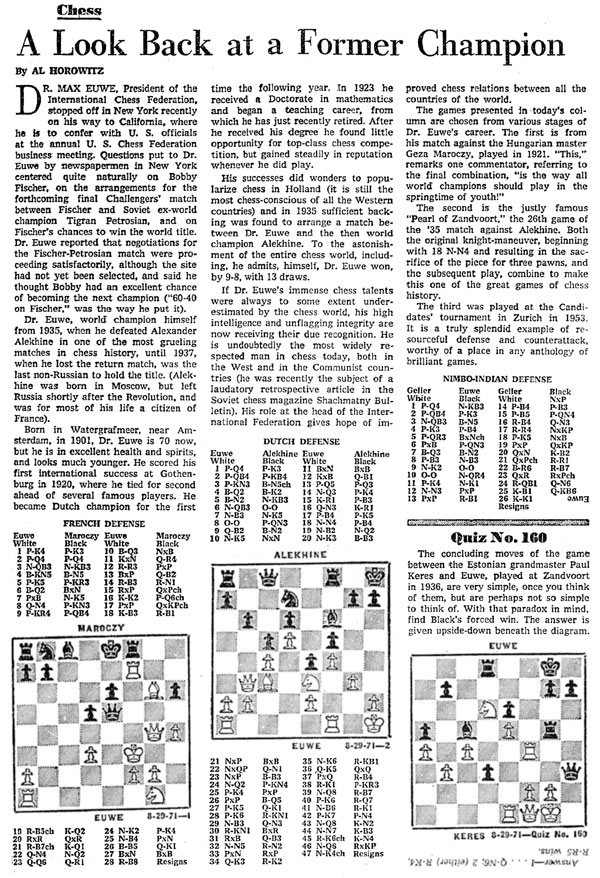New York Times, New York, New York, Sunday, August 29, 1971 - Page 149
Chess: A Look Back At A Former Champion by Al Horowitz
Dr. Max Euwe, President of the International Chess Federation, stopped off in New York recently on his way to California, where he is to confer with U.S. officials at the annual U.S. Chess Federation business meeting. Questions put to Dr. Euwe by newspapermen in New York centered quite naturally on Bobby Fischer, on the arrangements for the forthcoming final Challengers' match between Fischer and Soviet ex-world champion Tigran Petrosian, and on Fischer's chances to win the world title. Dr. Euwe reported that negotiations for the Fischer-Petrosian match were proceeding satisfactorily, although the site had not yet been selected, and said he thought Bobby had an excellent chance of becoming he next champion (“60-40 on Fischer,” was the way he put it).
Dr. Euwe, world champion himself from 1935, when he defeated Alexander Alekhine in one of the most grueling matches in chess history, until 1937, when he lost the return match, was the last non-Russia to hold the title. (Alekhine was born in Moscow, but left Russia shortly after the Revolution, and was for most of his life a citizen of France.)
Born in Watergrafmeer, near Amsterdam, in 1901, Dr. Euwe is 70 now, but he is in excellent health and spirits, and looks much younger. He scored his international success at Gothenburg in 1920, where he tied for second ahead of several famous players. He became Dutch champion for the first time the following year.
In 1923 he received a Doctorate in mathematics and began a teaching career, from which he has just recently retired. After he received his degree he found little opportunity for top-class chess competition, but gained steadily in reputation whenever he did play.
His successes did wonders to popularize chess in Holland (it is still the most chess-conscious of all the Western countries) and in 1935 sufficient backing was found to arrange a match between Dr. Euwe and the then world champion Alekhine. To the astonishment of the entire chess world, including, he admits, himself, Dr. Euwe won, by 9-8, with 13 draws.























